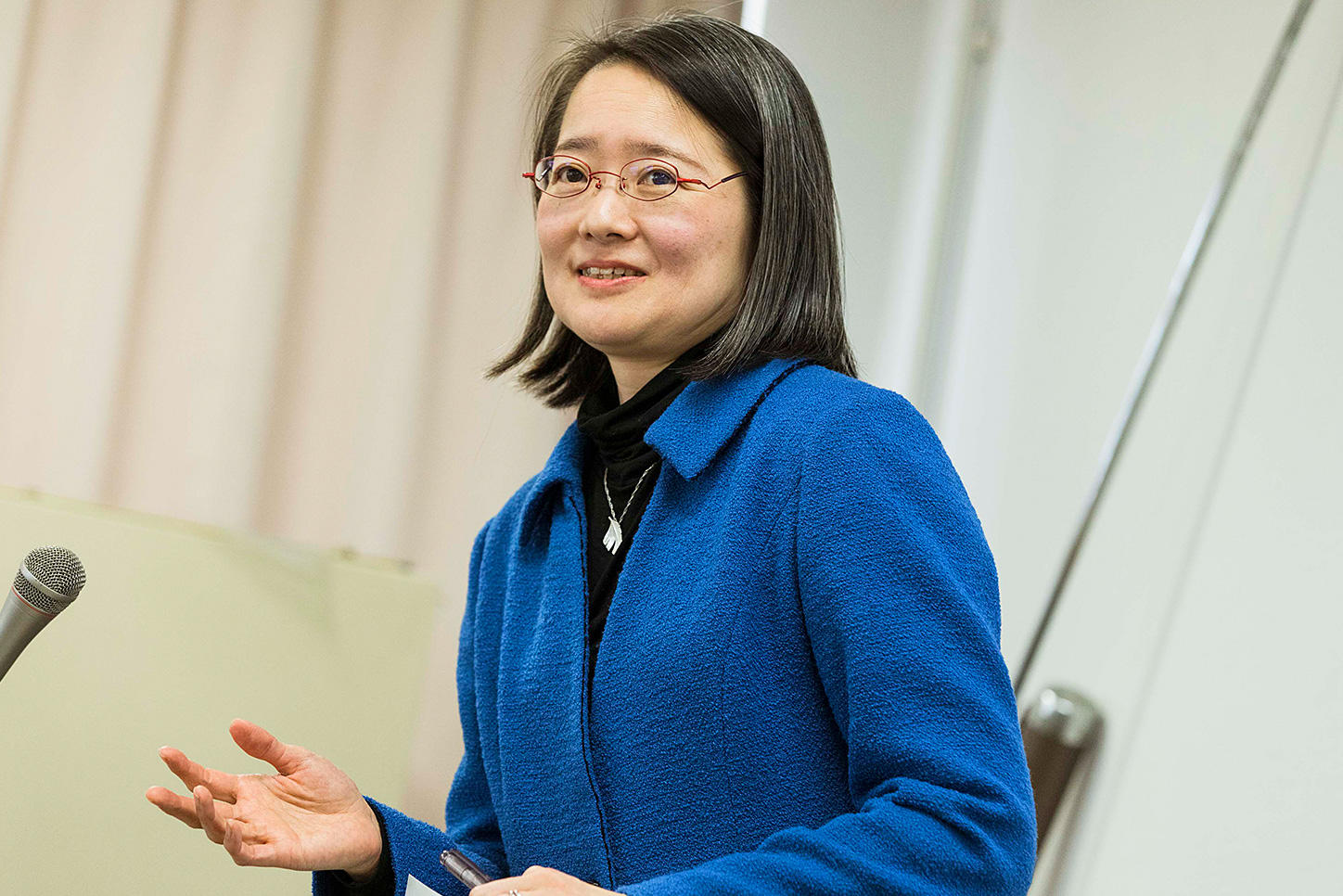Research HighlightsBuilding a Knowledge CommunityProf. Nozomi IkeyaDepartment of Library and Information ScienceNov. 30, 2016

My research takes an interdisciplinary approach called ethnomethodology, which is committed to examining and understanding people’s various practices from their own perspectives. "Ethno" means "the people's," so ethnomethodology could be put simply as "the methods of people." In contrast to the common research practice in the social sciences for researchers to construct an elaborate framework to understand the social actions of a group of people, ethnomethodology attempts to understand the reality of a group of people through examination of their actual practices. Although the activities of contemporary groups are often our main focus of research, we also deal with the texts as people’s writing practices. Taking this ethnomethodological approach allows us to understand how people evoke and share knowledge in context, without separating the knowledge from their practice. My interests lie in considering issues such as sharing, creating, and transmission of knowledge in organizations and communities.
My analytic engagement with medical care topics began 20 years ago while conducting fieldwork in the ER with on-call doctors at critical care and emergency medical centers. Since then I’ve also done research on understanding reference services and knowledge organization at university libraries, and the business support services at public libraries. During my previous work at Palo Alto Research Center (PARC) in the United States, I looked at how to make use of fieldwork in the context of information systems design, and how to collaborate with people in redesigning how they work.
In my current project, titled "Creating a Reciprocal Knowledge Community for Supporting Citizen’s Health," which is supported by the Ministry of Education, Culture, Sports, Science and Technology (MEXT), we have conducted interviews and workplaces to deepen our understanding of the following:
1. the context in which citizens, including patients and families, access medical and health information and make health-related decisions (understanding information practices);
2. how staff select and provide appropriate information for citizens in the support centers and patient libraries of medical institutions as organizations that specialize in providing access to health information (understanding institutional services practice); and
3. what kind of services are easily accessible institutions for citizens, such as public libraries, trying to provide for health and medical care (understanding public library service practice).
Understanding the above helps us to explore what is required to create an environment that supports health and welfare, i.e. an environment in which citizens can obtain information on health and medical care in a variety of ways, whenever they need it.
In the next stage of our research, we will be exploring requirements for facilitating collaboration and knowledge sharing so that public libraries, cancer support centers, and patient libraries can become even more important and relevant to citizen health support. Together with staff from public and patient libraries, the National Cancer Center and other cancer support centers, as well as library and information science researchers, we shall address the problem of how to build a reciprocal knowledge community that is both practical and beneficial to all parties involved.
The seemingly diverse settings for my research are unified by the analytic approach of ethnomethodology, which has enabled me to respond to how people work. The themes of information service design and the sharing and passing on of knowledge have consistently underpinned my work. The multiplex nature of my research experience continues to inform my current and future research.


